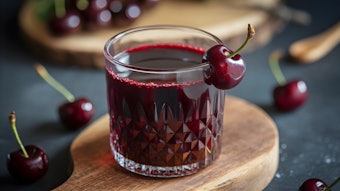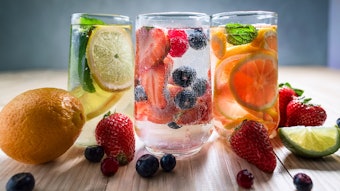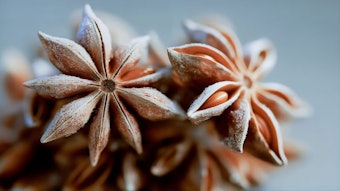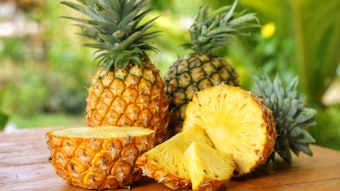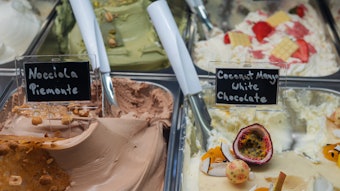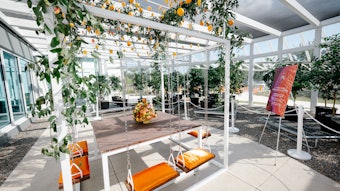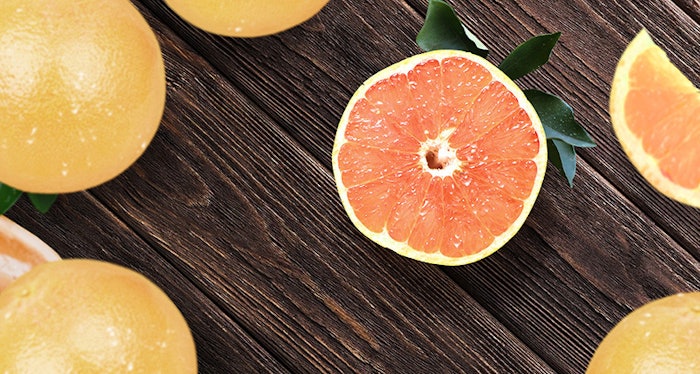
South Africa, the land of citrus
The cultivation of white grapefruit in the south of the African continent constitutes an important part of the rich and long heritage of the country. These fruits make a valuable contribution to regional economy, for individual consumption as well as for the flavor, fragrance and cosmetics industry worldwide. Many experts estimate that the KwaZulu-Natal region in South Africa will become one of the world’s most important sourcing and processing countries for white grapefruit.
Symrise is involved in this region and is now extending its citrus range with the South African grapefruit. Its unique flavor enriches the palette with a sought-after taste. Citrus fruits from this region impress raw material buyers with their quality and variety.
Grapefruits grow on particularly heat-tolerant, evergreen trees. They bear fruit both in hot deserts and in semi-tropical or tropical climates. KwaZulu-Natal offers perfect conditions with its humid, subtropical climate. It promises a fertile future for the citrus fruit and a secure supply of this popular flavor.
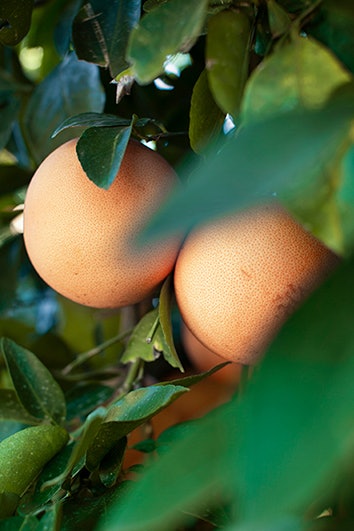 KwaZulu-Natal, a region in transition
KwaZulu-Natal, a region in transitionA lot of young Zulus in the KwaZulu-Natal region are looking for a basis to secure their future. Many of them seek employment, and those who might have a job in the farming industry would benefit from access to education in good agricultural practices. After the democratization of the country and the land reform, communities in KwaZulu-Natal received lands to cultivate. Some of the people became operators of farms without receiving the necessary training. To further build their knowledge & expertise, many young farmers are thus keen to get an education and sufficient resources to be able to manage these lands well.
Supporting Zulu communities
To help ease this sore spot, Symrise cooperates with the company Nkwaleni Processors in KwaZulu Natal. Nine large-scale and many small-scale farmers have joined forces in the cooperative. Symrise supplier Klaus Böcker GmbH operates the citrus fruit factory in the form of a 50% joint venture with the farmers and the Zulu community, represented by a tribal chair.
The factory can supply 50,000 tons of processed citrus fruit per year and specializes in grapefruits. Symrise and Böcker work together in two ways: by buying the factory’s produce and by aiming at jointly helping the communities and farmers. They want to support young Zulus in their education so that they can successfully farm and secure their livelihoods.
To this end, the partners aim to set up an agricultural academy that provides participants with knowledge about the latest and most sustainable cultivation practices and thereby helps them secure their future. This can help them gain self-confidence as they cultivate the fields in their own community efficiently and successfully.
https://www.symrise.com/sustainability/reports-policies-standards-audits/
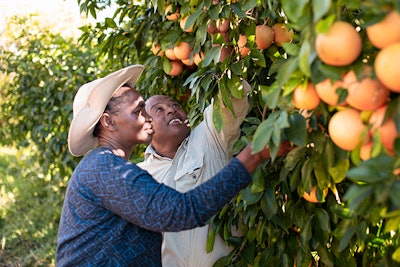 Sustainable production in South Africa
Sustainable production in South AfricaSymrise places great importance on complying with social and sustainability requirements both in South Africa and worldwide. In South Africa and in many other raw material cultivation areas, Symrise employees live as partners and neighbors to the farmers and support the local communities.
Symrise invests locally in technical equipment at the Nkwaleni Processors factory. The company has installed its patented SymTrap® technology directly into the juice concentration process. This enables accessing side-streams, which are of high value for the creation of flavors. As a result, the plant avoids precious raw materials going to waste. SymTrap® is able to collect aromatic components out of the evaporated water to create delicious citrus taste solutions. Creating signature taste solutions from material side streams is one of many examples of Symrise’s sustainable flavor creation.
https://www.symrise.com/flavor/beverages/#how-we-add-value
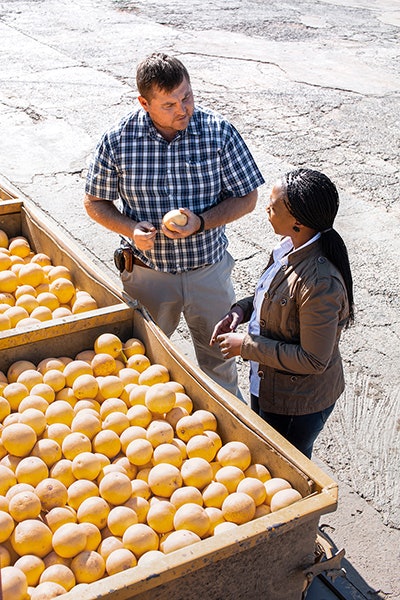 Sustainability at Symrise
Sustainability at SymriseSymrise commits to sustainability beyond its own factory. Most South African partners of the company are certified by the Global GAP and SIZA sustainability organizations (comparable with FSA 2.0 Silver and Gold status). Symrise has set itself the goal of sourcing all raw materials in such a way that it minimizes impacts on the environment and human rights are upheld.
It has already evaluated 90 percent of all the company’s main suppliers, who represent 80 percent of the purchasing volume, according to sustainability criteria. The German company Böcker, with which Symrise cooperates in South Africa, has also proven itself to be a trusted supplier for many years, meeting environmental and social standards.
Disclaimer:
The above paid-for content was produced by and posted on behalf of the Sponsor. Content provided is generated solely by the Sponsor or its affiliates, and it is the Sponsor’s responsibility for the accuracy, completeness and validity of all information included. Perfumer & Flavorist takes steps to ensure that you will not confuse sponsored content with content produced by Perfumer & Flavorist and governed by its editorial policy.

